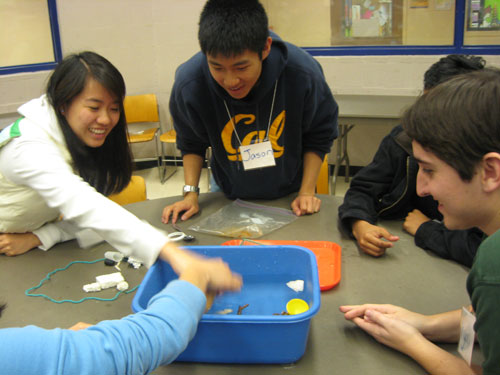
COMMUNICATING SCIENCE © 2011 the Regents of the University of California

Questioning Strategies is the first of four sessions in the course that involve participants in exploring the effective use of questions in leading discussions in the science classroom.
— This first questioning session provides some initial experiences using various types of questions to guide and encourage discussion, and also introduces practical concepts and questioning strategies.
— The second session, Questions Lab, provides an opportunity for real-life application, where the class has the chance to try out various questions with students of the same age course participants will be working with. They also observe an experienced instructor leading a discussion with these students.
— The third questioning session, Promoting Discussion, demonstrates how to effectively respond to student answers, and provides further examples of model teaching and questioning.
—The fourth questioning session, Classroom Conversations, focuses on the role of dialogue in learning and the importance of peer-to-peer discussions.
We strongly suggest that you read through all four sessions before presenting them, or at least review all the overviews, overheads, and handouts. This will give you a sense about how the sessions intertwine and how you might choose to facilitate some of the discussions.
This first session focuses on two main categories of questions—“broad” and “focused” questions—also referred to in some education literature as “open-ended” and “closed.”
— The interactive activities in this session introduce the appropriate use of both types of questions and are not intended to portray either type as “good” or “bad.” The emphasis is on analyzing the impact of both kinds of questions on student thinking and behavior, and using this information to help decide how and when to best use them.
— In addition, we explore the effects of sequencing questions, both to guide students through learning cycle-based explorations, and to help lead discussions. We also explore typical approaches teachers can take when answering questions (“sage on the stage” or “guide on the side”) and how these approaches can either draw out student questions or, in the extreme, shut them down.
Session 4: Questioning Strategies (as a PDF)
Session 4: Questioning Strategies (PowerPoint, supplemental)